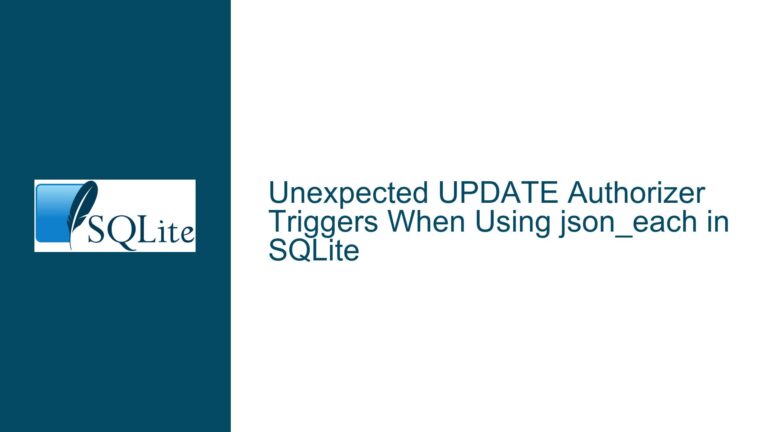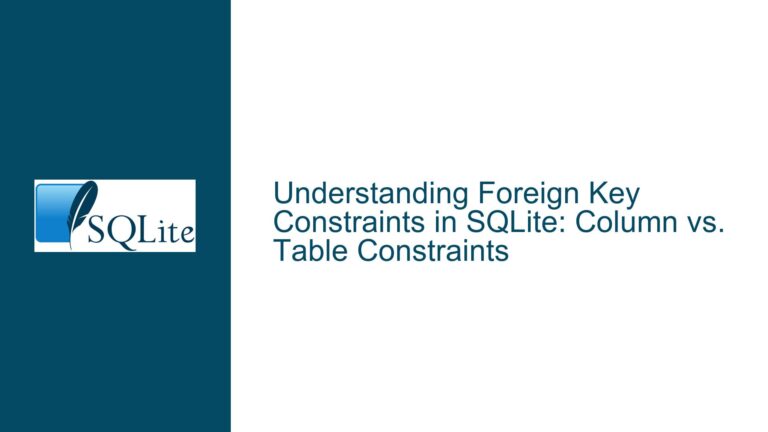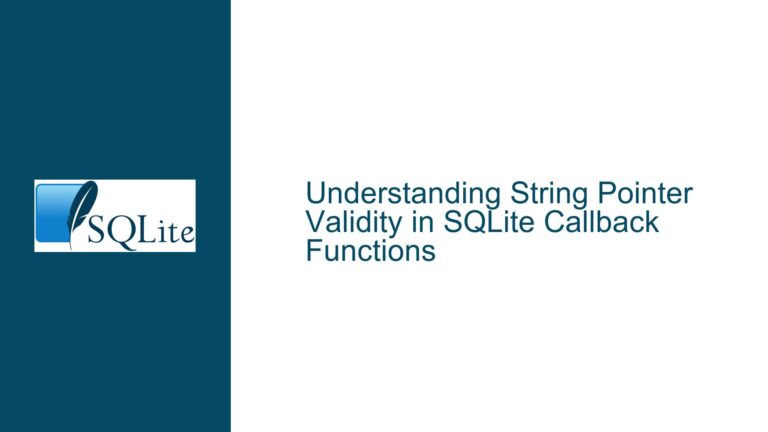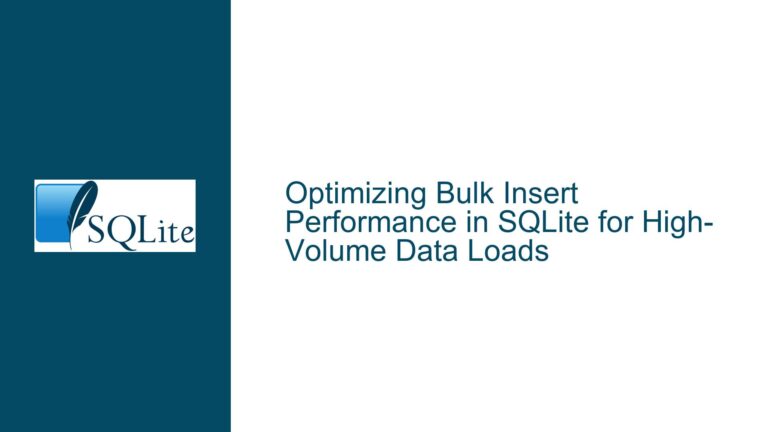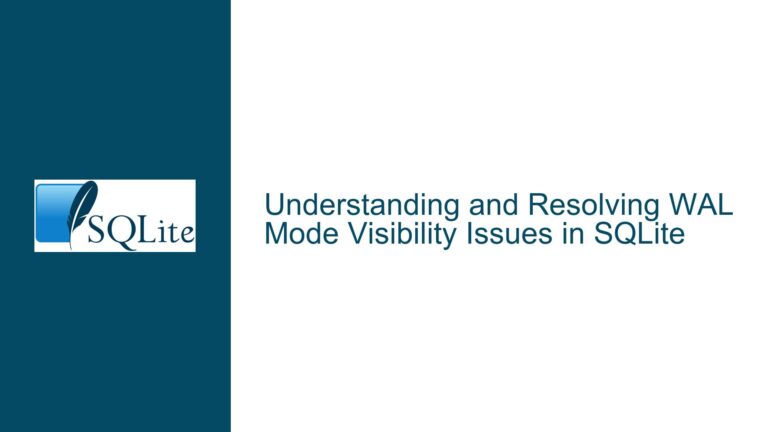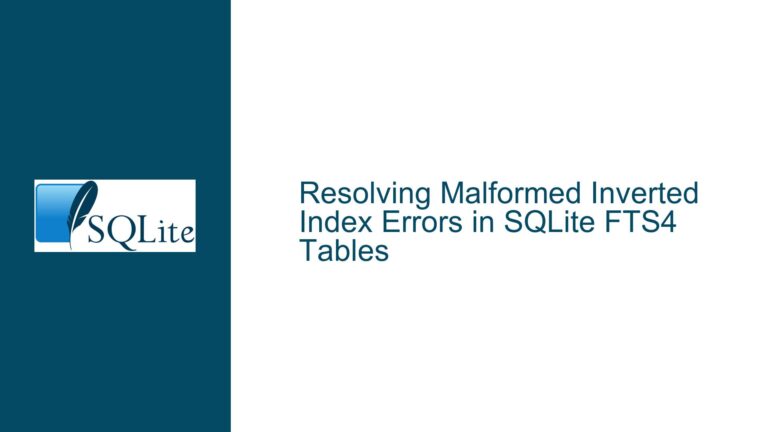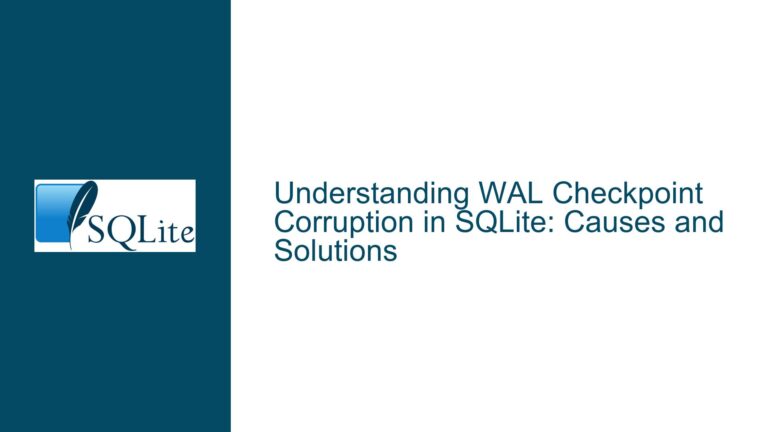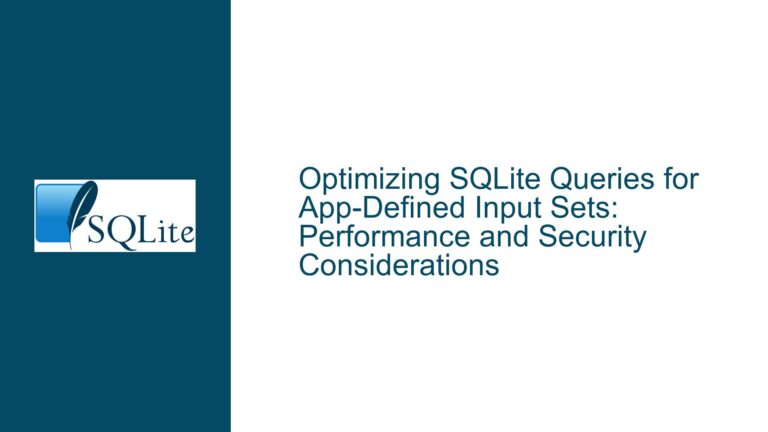Unexpected UPDATE Authorizer Triggers When Using json_each in SQLite
Understanding json_each-Induced sqlite_master Updates in SQLite Authorizer Contexts Issue Overview: json_each Virtual Table Creation Mistakenly Flags Authorizer Updates When employing the json_each function in SQLite queries, particularly in versions prior to 3.41.0, the SQLite authorizer callback may report unexpected UPDATE operations on the sqlite_master system table. This occurs despite the query being a SELECT operation,…
